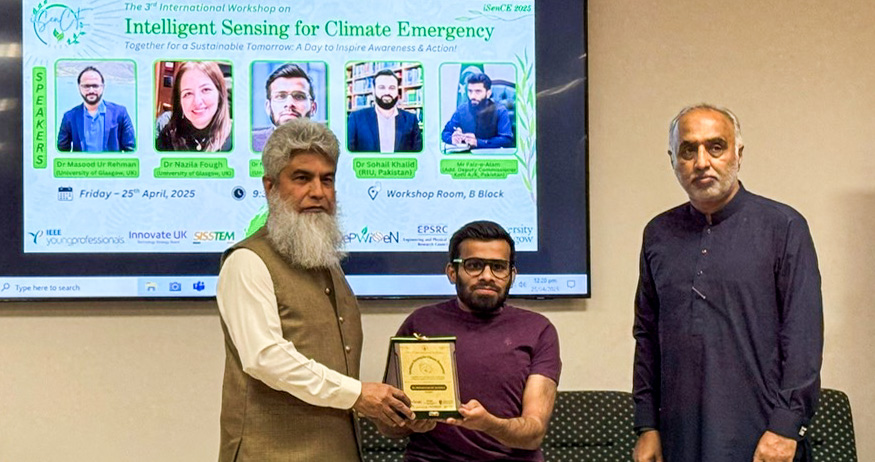SISSTEM workshop in Islamabad, Pakistan

Dr Masood Ur Rehman from the James Watt School of Engineering, along with IAA Knowledge Exchange Associate Dr Muhammad Ali Jamshed, organised the third Intelligent Sensing for Climate Emergency (iSenCE) workshop at the Capital University of Science & Technology (CUST) in Islamabad, Pakistan on Friday 25 April 2025. The event was attended by more than 50 participants.
Dr Ur Rehman and Dr Jamshed organised the one-day workshop to disseminate the results from their groundbreaking IAA-funded project, Self-powered Intelligent Sensory System for Environmental Monitoring (SISSTEM). SISSTEM aims to combat deforestation with a low-cost, energy-efficient, battery-less autonomous sensing device, capable of monitoring and transmitting real-time deforestation data. They presented the project’s achievements from the project using live demos.
Vice Chancellor of CUST, Dr Mansoor Ahmed, was the event’s chief guest. In his keynote, he emphasised the importance of innovative solutions like SISSTEM in combating global warming.
Other environmental sensing experts also delivered insightful talks. Dr Nazila Fough from the University of Glasgow, raised the need for underwater sensor communication in combating global warming. Dr Sohail Khalid from Riphah International University (RIU), Islamabad, discussed radio frequency (RF)-based solutions to address global warming. Mr Faiz-e-Alam from Forest Ministry of Pakistan emphasised the commercialisation aspect of the SISSTEM project and how it can play a major role in combating deforestation in Pakistan. Finally, Dr Nadeem Anjum, the Head of Department of Software Engineering, shed light on how CUST and the University of Glasgow can collaborate to overcome climate challenges.


